Sándor Petőfi — A Legend of the Hungarian Revolution with a Mysterious Fate
The Consul General of Hungary in Kazan, Sergey Syuсh, presented the exhibition Petőfi Around The World about the Hungarian poet
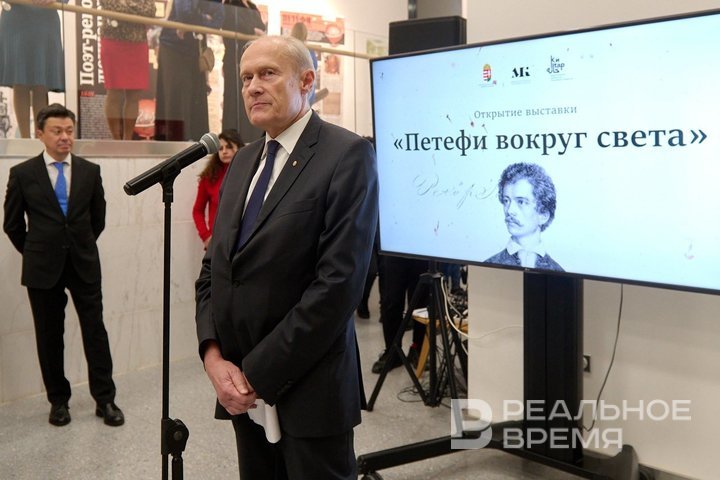
He was not afraid to stand against the imperial system, inspired crowds with his poems and himself went to the battlefield. Sándor Petőfi is a poet who turned words into weapons, a symbol of independent Hungary, and a figure whose name is still spoken with bated breath. Revolution, love and mysterious disappearance intertwined in the poet's fate, as if his life became one of his poems with an open ending. The Consul General of Hungary in Kazan, Sergey Syuсh, opened the exhibition Petőfi Around The World and also spoke about the life of the Hungarian hero.
Convenient, inexpensive, practical
The exhibition Petőfi Around The World is a “nomadic” exhibition that travels to different cities of Russia and the world. It was last represented in Yekaterinburg six months ago. The exhibition was created at the request of the Ministry of Foreign Economic Relations of Hungary in honour of the 200th anniversary of Sándor Petőfi. Its main purpose is to introduce the life of the legendary Hungarian poet, who became a symbol of the struggle for the country's independence. Although calling this event an exhibition is quite an overstatement. It consists of several information stands in the form of stretched roll-ups.
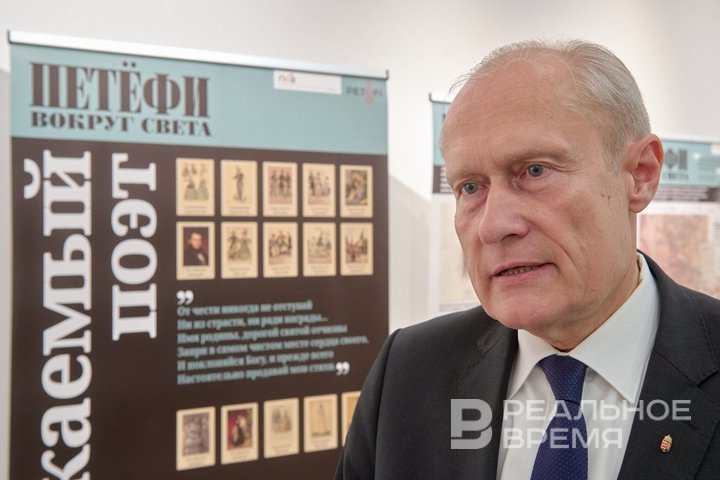
“It is very convenient. The exhibition can be quickly curtailed and moved to another location. Besides, you don't need a lot of space for this format. It is convenient, not too expensive, and can be placed in any hall. And this format is also very informative: there are paintings and texts here. I think this is the best option," Consul General of Hungary in Kazan Sergey Syuch told a Realnoe Vremya journalist.
But if the visual solution of the exhibition raises questions, then the Consul General's presentation of the main character around whom the exposition was created was very informative and detailed. It is clear that Hungary honours its heroes. Such vividly described Petőfi as if he was still standing on the Pest Street on that fateful March day, calling on the people to rise up against the Austrian yoke. Sándor Petőfi, forever young and brave, seems to look at us through the centuries, as if from the depths of his poems.
Son of the people
The real name of Sándor Petőfi was Alexander Petrovich. He was born on January 1, 1823 in Kiskőrös. His father, the poor nobleman Stefan Petrovich, was Serbian, and his mother, Maria Gruz, came from a Slovak family. Despite his humble origins, the future poet always felt a sense of pride and lofty goals within himself. The father tried to educate his son as much as possible, but due to the flood of 1838, the family lost everything, and Sandor was forced to leave school. The poet's path began with hardships, but it is thanks to this, it seems, that his will was tempered.
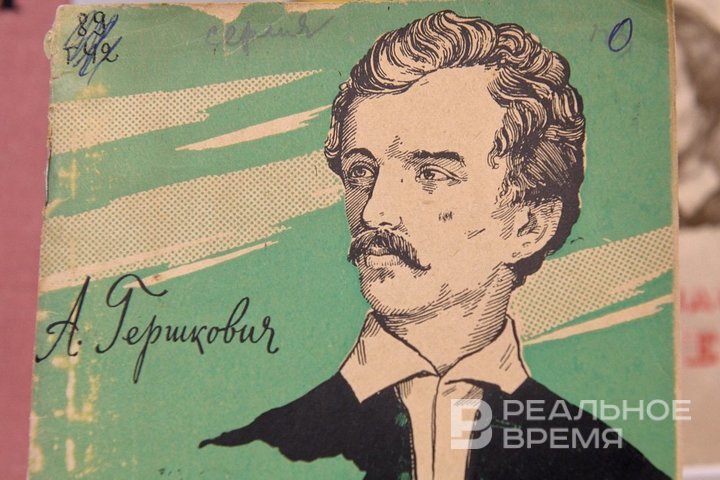
After leaving the lyceum, Petőfi's life was full of traveling and searching for himself. Military service, poverty, occasional earnings — throughout this time, he kept writing, though he might not have known that his fate would lead him to become a national hero.
Petőfi's first poem, “The Drinker”, was published in 1842. He already had that spirit of protest and humour that would become a hallmark of his poetry. But it was the poems that began to open the doors for Petőfi — he quickly entered the literary environment, where he found both a mentor and a friend — Mihály Vörösmarty, a recognised poet and publicist. Under his influence, Petőfi publishes his first collection of poems, which quickly became known and loved.
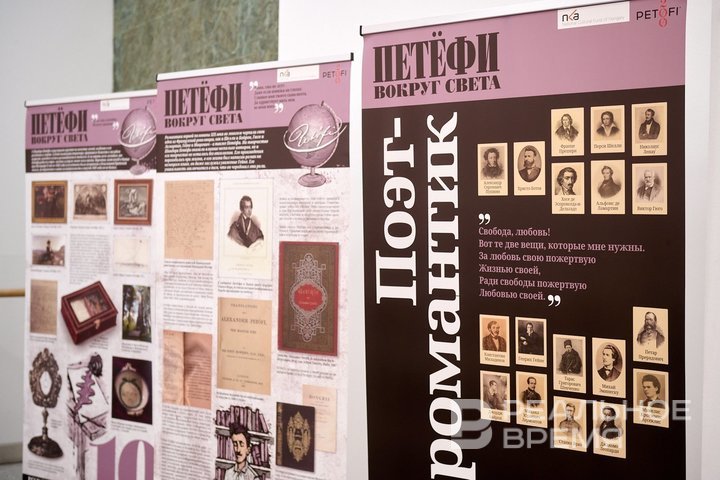
Pause for a moment and think: a young poet walks from Debrecen to Pest, just to have his poems published. This act was only the beginning of his struggle for ideals. His poems quickly gained followers — they were not only about love and nature, but also about the struggle for freedom, the suffering of ordinary people, and the dreams of achieving justice. “Against the Kings," “The Wild Flower” — these poems denounced the despotism of the Habsburgs and called for democracy.
“National Song” and the day that changed everything
The 15th of March, 1848 arrives. The streets of Pest are full of excited people. There is a sense of change in the air. On this day, a few hours after the gathering at the legendary Pilvax café, where young revolutionaries, including Petőfi, Mór Jókai, and their supporters, had assembled, Petőfi read his most famous work — “The National Song”. The poem calls for revolution, for the struggle for freedom and independence. Petőfi embodied the voice of the whole nation in this poem. The gathered people turned around and marched through the streets of the city, carrying with them the words that became the cry of the uprising.
Petéfi, more than anyone else, knew that words could be stronger than weapons. Soon, all of Buda was shaken by demands — the students who had gathered with him were joined by townspeople, workers, and even peasants. The crowd forced the Austrian officials to accept the "12 points," which were aimed at liberating Hungary from Austrian oppression and censorship.
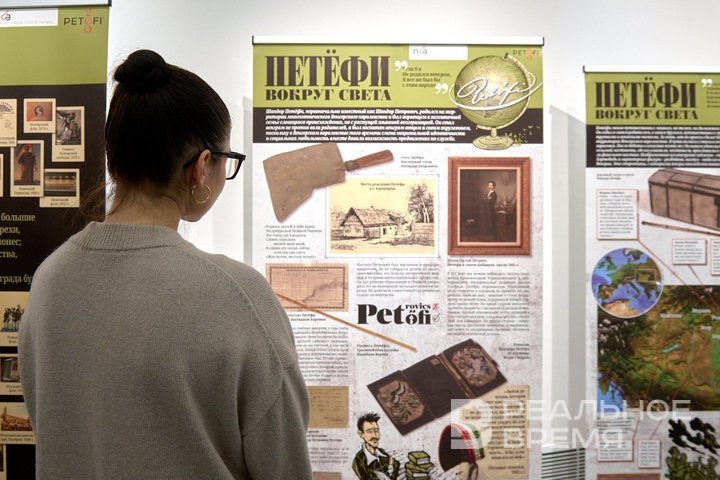
However, Petőfi did not remain just a symbol. For him, the struggle for freedom turned out to be more than words on paper. When diplomacy proved powerless, and the Austrian monarchy decided to crush the Hungarian uprising by force, he did not hesitate. In 1848, Petőfi joined the army under the command of Polish General Józef Bem. Brave and unwavering, he fought side by side with his comrades.
Imagine a poet writing poems on the frontlines, inspiring soldiers, creating battle songs as if forged in the rhythm of the marching step. Petőfi was not just a soldier —he was the voice of the army, its inspirer. For him, this struggle was not an abstract idea. He truly believed that only an independent Hungary could be just and free.
Mysterious death
Petőfi was last seen at the Battle of Segesvár on July 31, 1849, when Cossack troops defeated the Hungarian army. There is a legend that Petőfi died that day. However, the circumstances of his death are still unclear.
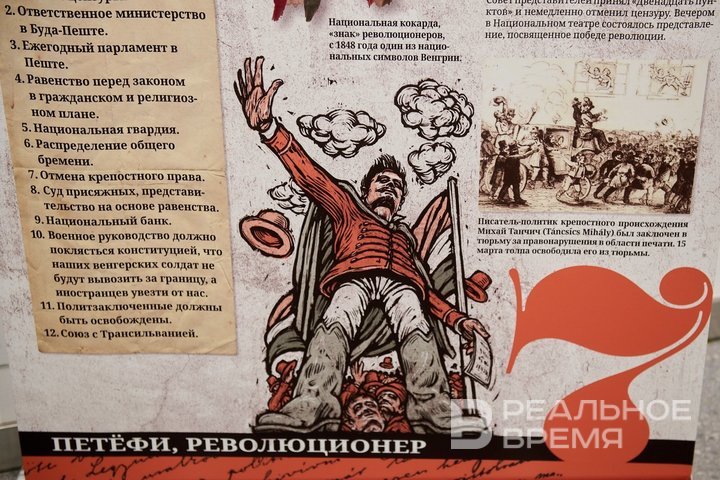
Some sources claim that he fell in battle. But many believe that he was captured by the Russians and exiled to Siberia. This hypothesis was fuelled in 1983 when a Hungarian researcher discovered a newspaper clipping mentioning the finding of a grave cross in Siberia with the name “Alexander Stepanovich Petrovich”. There was an inscription on the cross that it was the grave of a Hungarian poet and major who died in Asia in 1856. Excavations conducted in 1989 at the site of the presumed burial sparked a real frenzy, but the remains discovered at that time have still not been definitively identified.
Did Sándor Petőfi leave this world in 1849, or did he survive the battle? Did his path end in tragedy or did he live out his days in the distant Siberian forests? We may never know the truth. But the poet, the man who became a symbol for his people, remains alive in his memory. His poems are read, his feat inspires, and his life is an ever-sounding song full of dramatic rhythms, love and loyalty to the cause of freedom.
Ekaterina Petrova — a literary reviewer for Realnoe Vremya online newspaper, author of Poppy Seed Muffins Telegram channel, founder of the first online subscription book club Makulatura.